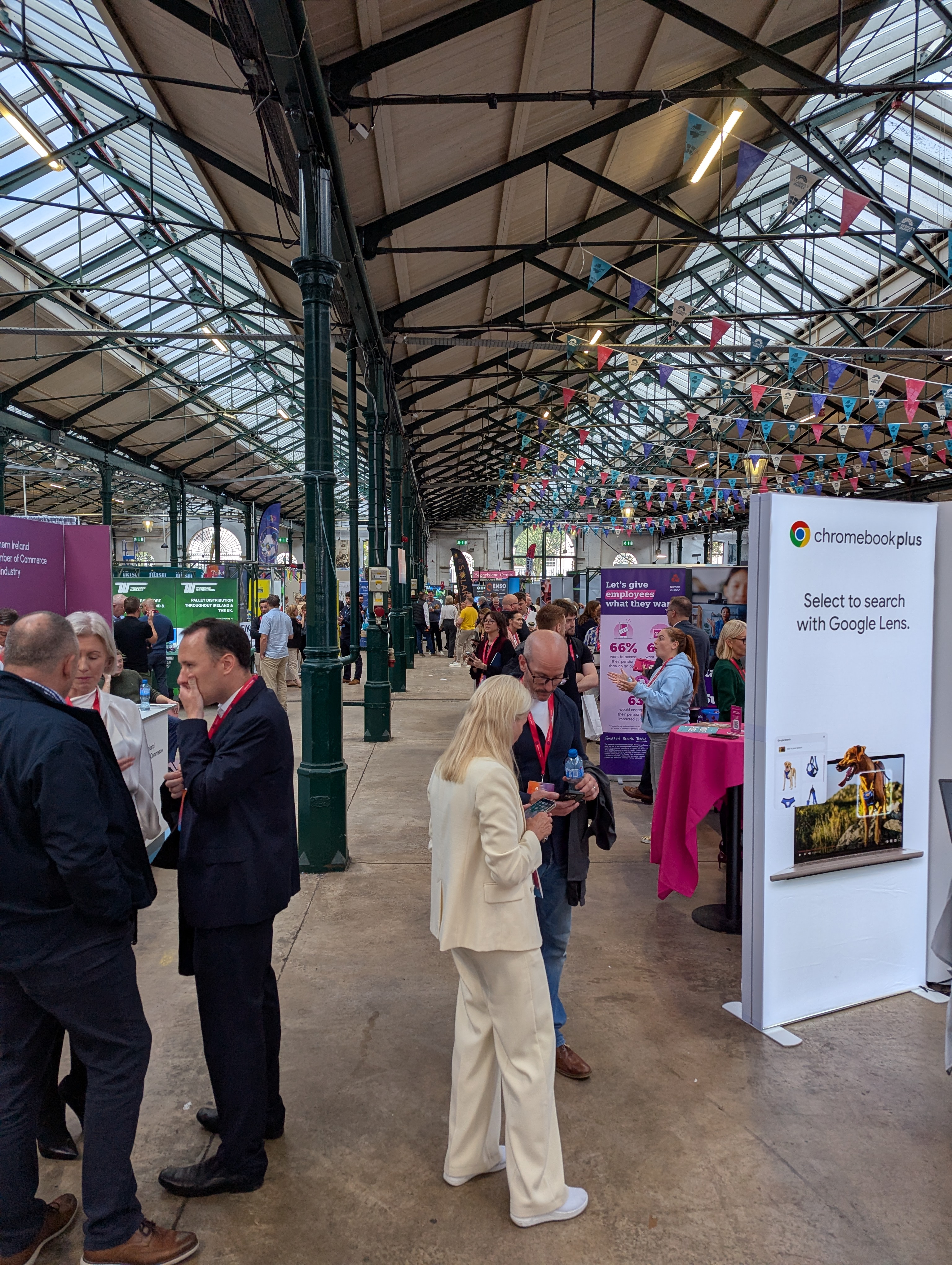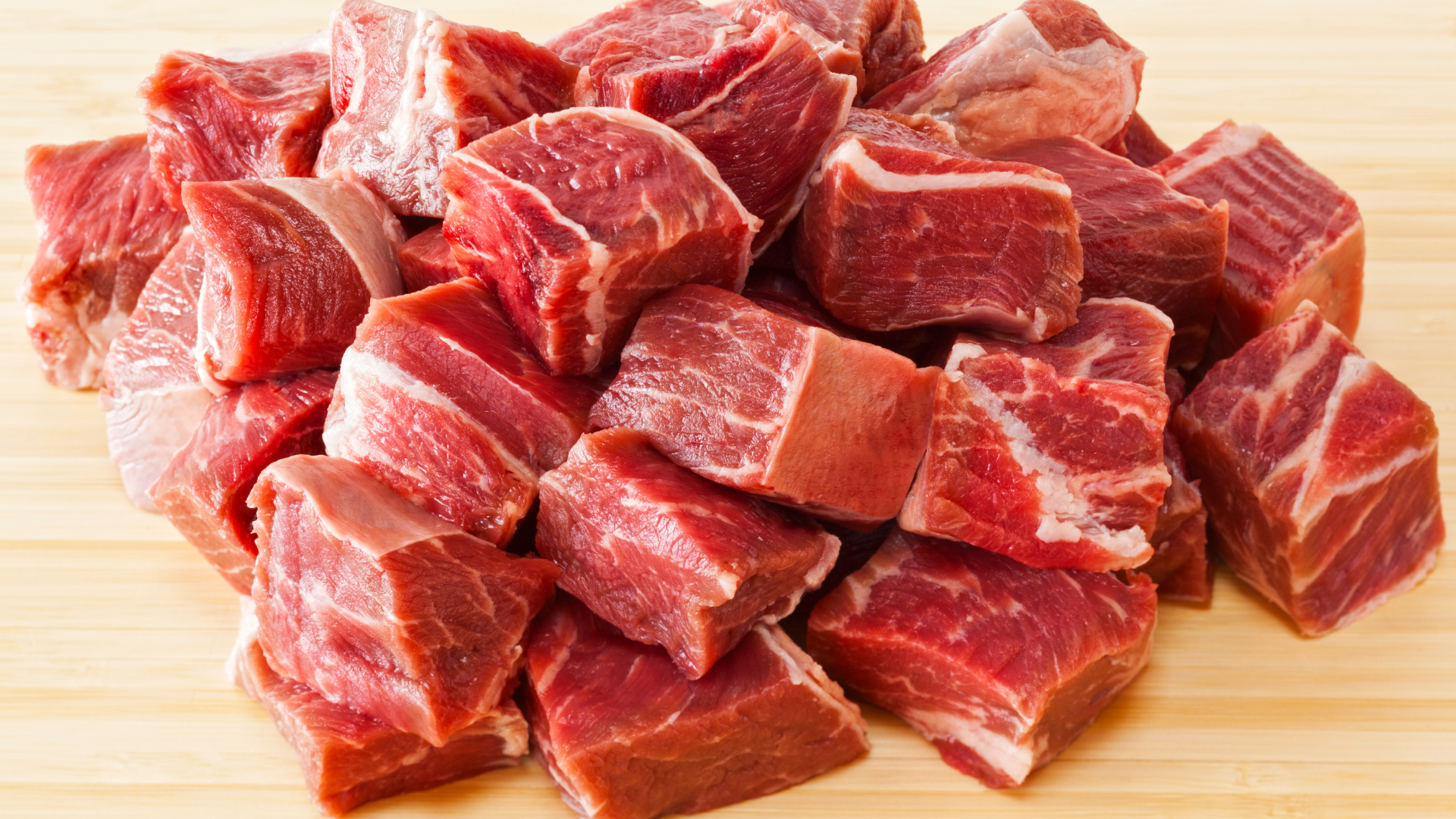AI is already gaining huge traction in food and drink. But as the technology goes from experimental to established, what might the future hold for its role in the sector? We spoke to four leading experts to find out.
The adoption of artificial intelligence (AI) into agri-food has already undergone rapid growth.
As Food Connected’s own research revealed, 70% of businesses have now implemented some form of AI or are planning to do so.
They’re experimenting with AI-based solutions across food safety, product quality, customer experience and even personalisation. Eighty-nine percent even have dedicated budgets in place for implementation.
But, what’s next?
After all, we’re at a critical juncture for the technology.
Early-stage trials are progressing into longer-term investment - 96% of businesses anticipate further investment in AI technologies within the next five years - and with that change more questions are being asked by senior business leaders about which applications of AI can drive value in the long-term – and which have generated little more than hype.
So, which applications are likely to win through?
And how can agri-food businesses ensure they’re primed to reap the rewards?
Here’s what four leading experts had to say.
‘Huge opportunities’ in agri-food
For Stephanie Brooks, head of innovation at Foods Connected, AI within farming and manufacturing are the parts of the supply chain where she expects to see adoption increase most significantly in the coming years.
“I would hope there would be much wider adoption of technology and AI across the production base to help automate more labour-intensive tasks but also to help with ESG, such as better animal welfare outcomes, improved carbon monitoring and informing better circular economy initiatives”
Dr Stephanie Brooks,
Head of Innovation, Foods Connected
“With respect to the manufacturing environment, I think there is good potential for AI to again help with automating routine tasks, such as quality and safety checks, but also anomaly detection (i.e., out of the ordinary) to allow for earlier intervention, and in some cases maybe AI actually doing the intervening, e.g., stopping the line when there is a food safety risk identified, rather than having a human detect and take action.”
In addition, “supply chain is going to be a big area,” says Stephen McCabe, interim executive director of Momentum One Zero, a £70m innovation centre being delivered by Queen's University Belfast
“You’ve got regulatory pressures on companies, sustainability goals that people have to comply with, and AI can help with that in terms of optimising and making supply chains more resilient and traceable.”
Stephen McCabe,
Interim Executive Director of Momentum One Zero
At Queen’s University Belfast for example, the Queen’s Business School, along with the team at Momentum One Zero, has recently won a £6m project to increase resilience in supply chains which will see digital twins used to test different parameters and help companies better navigate unforeseen events.
“There's also massive potential to get into a more predictive analytics space where companies could be doing not just quality control but forecasting of yields and using AI to understand market trends and so forth,” adds McCabe. “That’s a whole new world that I don't think we have got to yet.”
And for Matt Lovell meanwhile, now group director of data and AI at retailer JD Sports Fashion and formerly global director of data and insight at Pret A Manger, the accessibility of generative AI tools could unlock all sorts of creative potential across teams.
“One of the great things about the GPTs that have been built across the ever-advancing LLMs in the market is their potential to help drive creativity,” he points out. “For me this works best where creatives are given the tools to aid their research and ideation enabling them to generate fresh ideas based on inspiration that may have come with the support of an AI assistant,” he adds. “Then even on the data side of things, we're finding that utilising an AI assistant to help develop, sense check and provide recommendations on code is driving huge improvements in speed of delivery so there really are opportunities everywhere.”
"Utilising an AI assistant to help develop, sense check and provide recommendations on code is driving huge improvements in speed of delivery so there really are opportunities everywhere.”
Matt Lovell,
Group Director of Data and AI at retailer JD Sports Fashion and formerly Global Director of Data and Insight at Pret A Manger
How to ‘ride the AI horse well’
No matter how promising the potential of AI across these areas though, the future of the technology within agri-food rests heavily on businesses’ ability to get themselves ready to reap the rewards.
That’s why Brooks hopes – alongside exploring more applications in production and manufacturing – the sector also makes significant progress in terms of its data readiness. "In five years the agri-food sector in general will ideally be a lot more digital, with a large focus on data readiness and interoperability to ultimately let them avail of AI much more freely, with less constraints and ultimately be in a position where data, and therefore AI can be used as a strategic asset,” she predicts.
“That skills piece is something that's [also] really important in terms of future workforce and AI readiness in the workforce too,” adds McCabe. “People say, AI won't necessarily replace your job, but someone who uses it will. That’s important. In the agri food sector, there might be some uncertainty about new technologies. That could be part of the picture and create some of the barriers that need to be overcome for AI adoption.”
“Riding the AI horse well, with meaningful applications to specific businesses, will require a big change management to secure proper and relevant funding for the years to come,” believes Sarah Duchazeaubeneix, commercial leader for Western Europe, Retail Collaborative Projects at NIQ.
"AI needs to learn, and to learn well data needs to be in order.”
Sarah Duchazeaubeneix,
Commercial Leader for Western Europe, Retail Collaborative Projects at NIQ.
“The adaptability of leaders to envision the potential is key here. We also observe the reverse: high focus and large investments but with unprecise planning where too many use cases can be pursued at the same time, without a strong strategic focus on meeting selected desired objectives. This is a common pitfall, alongside forgetting that AI needs to learn, and to learn well data needs to be in order.”
“The speed at which AI capabilities are developing is phenomenal so I genuinely think companies will either adopt or start to fall behind,” sums up Lovell.
“The key for me is around how we train and develop our teams to utilise these technologies and become more effective through their help. I also think there is a governance piece that comes into play - it's only a matter of time before a major company has some sort of failure or breach thanks to a poorly developed AI solution so there's a constant need to train people and monitor delivery to make sure that it isn't us.”
Want more insights on the reality of AI in agri-food? Download your copy of the report featuring data from 500 businesses in the UK and US and insights from industry experts.
.jpg)
Greer McNally
Greer has over 15 years’ experience writing about trends in the food and retail sectors. She lives in a little village by the sea in Northern Ireland and loves creating content that informs how people think about the food industry. A recent career highlight was interviewing the legend that is Dr Temple Grandin.
Stay up to date
Stay up to date
Browse Posts
- February 2026
- January 2026
- December 2025
- November 2025
- October 2025
- September 2025
- August 2025
- July 2025
- June 2025
- May 2025
- April 2025
- March 2025
- February 2025
- January 2025
- December 2024
- November 2024
- October 2024
- September 2024
- August 2024
- July 2024
- June 2024
- May 2024
- April 2024
- March 2024
- February 2024
- January 2024
- December 2023
- November 2023
- October 2023
- September 2023
- August 2023
- July 2023
- June 2023
- May 2023
- April 2023
- March 2023
- December 2022
- November 2022
- October 2022
- September 2022
- August 2022
- July 2022
- June 2022
- May 2022
- April 2022
- March 2022
- February 2022
- January 2022
- December 2021
/Blog%20Headers/AI%20Interviewees%20Blog_header.jpg)

/Blog%20Headers/shutterstock_1927957907%20(1).jpg)
/Blog%20Headers/shutterstock_1845178195%20(2).jpg)
/Blog%20Headers/shutterstock_2133827717%20(1).jpg)
/Blog%20Headers/shutterstock_2473376713.jpg)
/Blog%20Headers/shutterstock_2247276303.jpg)





/Blog%20Headers/shutterstock_2087508244.jpg)
/Blog%20Headers/shutterstock_2461210039.jpg)
/Blog%20Headers/shutterstock_1800794020.jpg)
/Blog%20Headers/shutterstock_1705229173.jpg)
/Blog%20Headers/Headshot%20B%26W.jpg)

/Blog%20Headers/Red%20Sea%20supply%20chain%20disruptions%20how%20they%20affect%20the%20food%20industry%20and%20what%20to%20do%20to%20protect%20your%20businessjpg.jpg)
/Blog%20Headers/The%20importance%20of%20supply%20chain%20traceability%20for%20food%20safety.jpg)
/Blog%20Headers/shutterstock_2473679695%20(1).jpg)